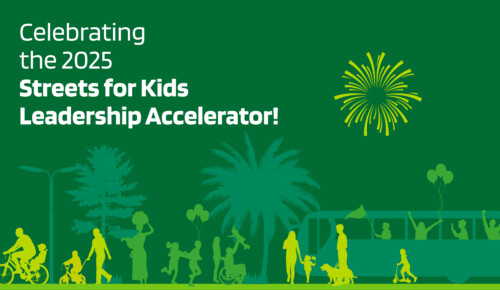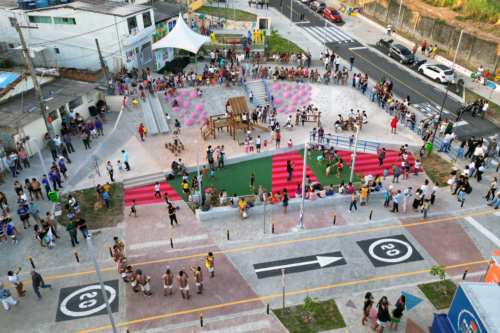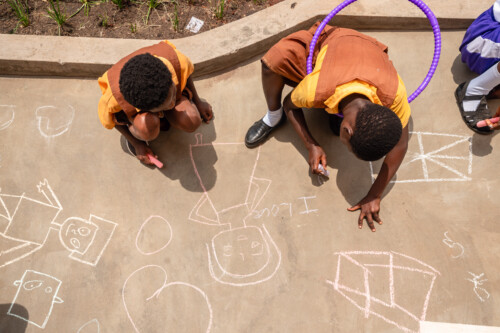GDCI Street Shaper of the Month
Nina Asterina
Program Manager for Urban Inclusivity Initiatives at Kota Kita Foundation, Surakarta (Solo), Indonesia

Nina researches, develops, and implements initiatives that promote more inclusivity in cities, such as participatory mapping, urban mobility, inclusive economy, and disability-inclusive campaigns.
Please tell us about your work on urban streets and/or mobility.
My work focuses on planning, designing, and implementing inclusive and participatory street designs through a collaborative process to improve physical and social mobility in a city. Some of our projects include an inclusive safe school zone for children without and with special needs, and an inclusive mobility initiative; both are in the City of Banjarmasin, Indonesia.
What are the biggest mobility and/or road safety challenges in your city?
In terms of accessibility, some cities in Indonesia have taken steps to provide accessible and inclusive public infrastructure, but these investments are fragmented, focusing mostly on improvements on major arteries and roadways. Meanwhile, developments at the neighborhood level are disconnected. They also often fall short of universal design standards.
Tell us about an innovative urban project(s) or approach(es) that has inspired your work.
The Global Street Design Guide by Global Designing Cities Initiative has been the benchmark in my work to promote safe and sustainable cities. With inclusive and participatory approaches, we can encourage meaningful participation from everyone, including vulnerable groups. It’s a reminder that investment in inclusive and accessible streets is an investment for everyone.
What is the biggest challenge or most common roadblock you face in implementing innovative projects in your city?
Awareness and knowledge of inclusivity and accessibility standards in the planning, design, and implementation of public infrastructures are still lacking among government agencies and communities in Indonesia. This often creates barriers to meaningful participation of vulnerable groups and leads to poor decision-making processes in implementing innovative projects.
What mobility, public space, or road safety improvements would you like to see in your city by 2030?
I believe that the COVID-19 pandemic presents an opportunity for us to redesign mobility to be more inclusive and accessible, and develop solutions for people who have limited mobility options. My hope is that cities in Indonesia can align with universal design standards and involve community members with disabilities when designing and implementing inclusive mobility initiatives.
What is your favorite urban/mobility/public space/cities-related quote?
One of my favorite quotes is by David Harvey, who is an influential voice in promoting Right to the City principles: “The freedom to make and remake our cities and ourselves is, I want to argue, one of the most precious yet most neglected of our human rights.”




Image Captions:
1. Discussions involving key stakeholders in Banjarmasin, South Kalimantan—from the government to civil societies – to build a more inclusive city.
2. Elementary students at the inclusive school SDN Gadang 2 in Banjarmasin, South Kalimantan.
3. Board games are used to engage students in expressing their aspirations to improve their school environment.
4. Elementary students excited to share their aspirations for their school—from a cleaner environment and more colorful decorations.
5. In an initiative to promote inclusive mobility, a prototype of a three-wheeled motorcycle is being developed to assist in improving the mobility and livelihood of persons with disabilities in Banjarmasin, South Kalimantan.







